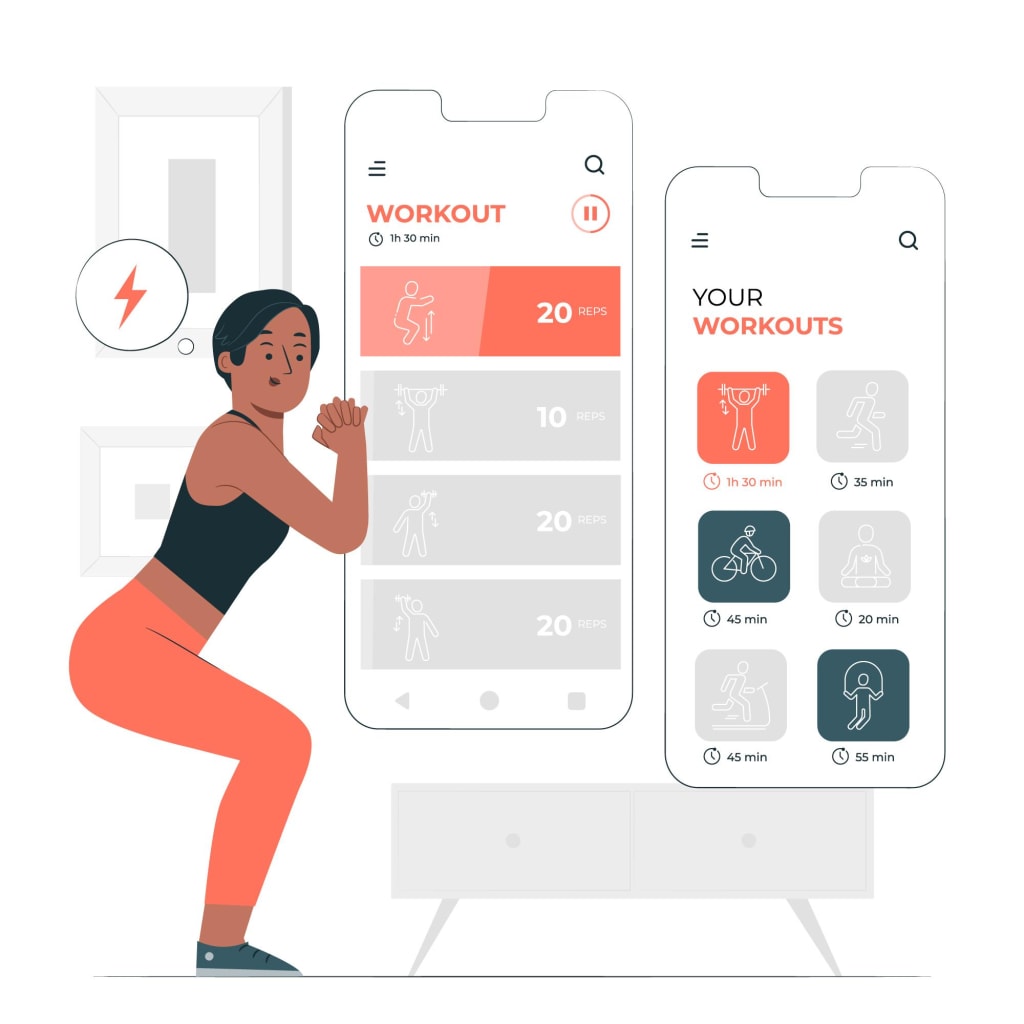The Science Behind Personalized Workouts in Fitness Apps
Discover how fitness apps leverage cutting-edge scientific principles to deliver personalized workout experiences. By analyzing user data, including fitness goals, body metrics, and performance history, these apps tailor workouts to individual needs.

Introduction
Fitness apps have become increasingly popular in recent years, as more people are looking for convenient ways to stay active and improve their health. One of the key features of many of these apps is the ability to personalize workouts to meet the unique needs and goals of individual users. But what is the science behind personalized workouts in fitness apps?
Understanding Personalization
Personalization refers to the tailoring of a workout program to an individual's specific needs, abilities, and goals. It takes into account factors such as age, gender, fitness level, body composition, and any health conditions or injuries. By personalizing workouts, fitness apps can provide users with a more effective and enjoyable exercise experience.
The Role of Algorithms
Behind the scenes, fitness apps use sophisticated algorithms to analyze user data and generate personalized workout plans. These algorithms consider various factors including body measurements, workout history, and progress tracking. By using machine learning and artificial intelligence techniques, these algorithms continually learn and adapt based on user feedback, making the personalized workout programs even more effective over time.
Tailoring Exercise Intensity
One of the most important aspects of personalized workouts is adjusting the exercise intensity to match an individual's fitness level. Fitness apps use algorithms to estimate a user's maximum heart rate, which is a key indicator of exercise intensity. By monitoring heart rate during workouts, these apps can provide real-time feedback on intensity levels and suggest adjustments to ensure optimal training.
Targeting Specific Muscle Groups
Another benefit of personalized workouts is the ability to target specific muscle groups. Depending on an individual's goals, fitness apps can suggest exercises that focus on building strength or endurance in specific areas of the body. This targeted approach helps users to achieve well-balanced fitness and avoid overuse injuries. Apps often provide instructional videos and detailed explanations of each exercise, ensuring proper form and technique.
Progress Tracking and Goal Setting
Fitness apps also play a crucial role in tracking progress and setting goals. By monitoring and tracking exercises, reps, sets, and weights, these apps help users stay motivated and accountable for their fitness goals. Additionally, if you want to integrate a progress tracking feature in your app, then you must consult with a fitness app development company.
With these features, users can see their progress over time, celebrate milestones, and adjust their workout plans accordingly. These features help to ensure a long-term commitment to fitness and provide a sense of achievement and satisfaction.
The Psychological Aspect
Personalized workouts go beyond physical aspects and also take into account the psychological factors. Fitness apps often include features such as motivational quotes, challenges, and social sharing. By providing positive reinforcement and creating a sense of community, these apps contribute to the overall mental well-being of users, making them more likely to establish a lasting fitness routine.
Safety and Risk Reduction
Personalized workouts in fitness apps also prioritize safety and risk reduction. By considering an individual's health status, fitness apps can suggest exercises that are safe and appropriate. They can take into account any existing injuries or health conditions, providing modifications or alternatives to certain exercises. This personalized approach minimizes the risk of injury and ensures a safe workout experience.
Conclusion
The science behind personalized workouts in fitness apps encompasses various elements, including the use of algorithms, the tailoring of exercise intensity and targeted muscle groups, progress tracking, goal setting, psychological aspects, and safety considerations. By leveraging these scientific principles, fitness apps can offer users effective, enjoyable, and safe workout experiences. As technology continues to advance, we can expect even more sophisticated personalization features in fitness apps, further revolutionizing the way we approach fitness and helping individuals achieve their health and wellness goals. So if you are planning to invest in fitness app development, then you must take assistance from a mobile app development services provider.
About the Creator
Jenifer Clark
I am an SEO executive and professional content writer with an implacable 5 years of experience in the industry. Also work as a freelancer.






Comments
There are no comments for this story
Be the first to respond and start the conversation.